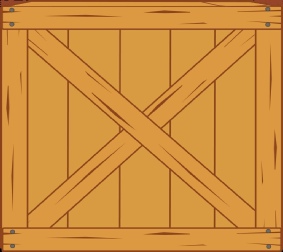© 2014-

Copyright (Britain)
The rights of record manufacturers to receive copyright payments is contained in the Copyright Act 1956 and there are two entitlements to such payments:-
(a) for the recording itself and the artist making the recording -
b) for the music and words of a song, the copyright for which is handled by the Performing Right Society.
Copying, re-
PHONOGRAPHIC PERFORMANCES LTD (PPL)
This organisation was established in 1934 to protect its members from the threat posed by the unauthorised use of their work for public performances.
PPL saw the unlimited use of records by the offshore radio stations as a threat to the livelihood of their members because in their view it would almost certainly mean a decrease in the demand for live performances. Such over exposure of recorded music by offshore stations was also perceived by PPL as a threat to the sales of records, again producing an adverse effect on musicians' livelihoods.
The organisation collects all fees on behalf of its members for the broadcasting and public performances of recordings for which licences have been issued. After deduction of administrative costs the balance is shared between the Musicians Union, the artist who made the record and the record manufacturer
PERFORMING RIGHTS SOCIETY LTD (PRS)
PRS was formed to protect the performing rights of composers, lyric writers and publishers. The Society accepts assignments of the public performance and broadcasting rights of the work of its members and negotiates, collects and distributes the resulting fees. Although the Society received a number of payments from certain offshore radio stations its official policy was to oppose their existence and as a member of the British Copyright Council it joined in representations being made to the Government to outlaw the offshore broadcasters. The Society did this on the basis that the stations were operating outside the national legal system and by doing so were evading a number of legal liabilities and responsibilities. The Society sought to justify its apparent contradictory stance on this issue in the following statement provided to the author of "Radio Caroline", John Venmore-
“The Society is not in a position either to grant an offshore broadcaster a licence, or to withhold its licence. Any obligation which is felt to fall on an offshore broadcaster to pay something corresponding to a royalty for the music which he broadcasts is therefore purely a moral one and, if in recognition of such a moral obligation a particular offshore broadcaster is prepared to pay to the Society sums calculated on a basis regarded as reasonable by the Society, then there does not appear to be any motive of principle for the refusal by the Society to accept such payments. It should not be a consequence of such acceptance, however, that the Society renounces its attitude to the general question of offshore broadcasting."
The question of the impact of offshore radio on record sales was a controversial one and an argument which lasted throughout the lifetime of the stations.
Statistics show that in the first six months of 1965 sales of singles declined by 23% -
People are not buying [records] because of over exposure on the 'pirates'. A record has been played on one station as often as 14 times a day. Being in international waters the pirates needn't pay us a penny and we have no control over what they play.
Record companies failed to acknowledge in making these allegations that sales of LPs (albums) had increased during this period. The offshore stations also opened up the market for smaller record companies -
The impact of the offshore stations in this direction can be demonstrated by the fact that in 1961 EMI and Decca alone accounted for 84 of all Top Ten singles records produced in Britain. By 1966 their share had dropped to 57% with the explosion of smaller labels and their promotion on the offshore stations.


HOLD Noun -







Basement
Back to







3